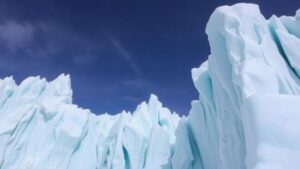Exploring the coral lagoons of the Maldives for signs of newly adapted marine life linked to rising sea levels.
Exploring the Coral Lagoons of the Maldives for Signs of Newly Adapted Marine Life Linked to Rising Sea Levels
The Maldives, an expansive collection of 1,192 coral islands situated in the Indian Ocean, is renowned for its stunning biodiversity and picturesque lagoons. But, these coral lagoons are not just visually arresting; they are also vital ecosystems facing unprecedented challenges due to rising sea levels and climate change. This article delves into the unique adaptations of marine life in these lagoons as they cope with these environmental shifts.
The Impact of Rising Sea Levels
Rising sea levels pose a serious threat to coastal ecosystems worldwide. According to a report by the Intergovernmental Panel on Climate Change (IPCC) released in 2021, sea levels could rise by up to 1.1 meters by 2100 if global warming continues at its current rate. For the Maldives, where over 80% of the land sits less than one meter above sea level, this could mean drastic changes.
As sea levels rise, the salinity of lagoons can increase, impacting the delicate balance of marine ecosystems. Many species that thrive in specific salt concentrations may find it difficult to survive. For example, species like the Maldives’ native butterflyfish (Chaetodon spp.), which rely on specific coral habitats, may experience significant stress, leading to changes in their behavior and distribution.
Signs of Adaptation in Marine Life
In the face of these challenges, various marine species in the coral lagoons of the Maldives have begun showing signs of adaptation. Observing these changes offers insights into how marine life can evolve or shift their behaviors in response to environmental stressors.
- Coral Resilience: Some coral species, such as *Acropora* and *Pocillopora*, have demonstrated increased resilience to higher temperatures and salinity levels. Research conducted by the Coral Triangle Initiative showed that these corals can expel and reabsorb symbiotic algae known as zooxanthellae more effectively, allowing for better survival rates during warming periods.
- Shift in Species Distribution: Certain fish species are moving to deeper waters or seeking new habitats as their traditional environments are altered. For example, the reef fish population that normally resides shallower has been observed migrating towards cooler, deeper zones, demonstrating flexibility in their habitat choices.
- Increased Biodiversity: Interestingly, some areas where coral ecosystems are stressed have seen the emergence of resilient species. Researchers from the Maldives Marine Research Center reported a rise in populations of certain sea urchins and algae that thrive in high-salinity conditions, creating a new balance in the ecosystem.
Real-World Applications and Conservation Efforts
Understanding the adaptations of marine life in the Maldives is critical for conservation efforts. The Maldives government, alongside global organizations like the World Wildlife Fund (WWF), has initiated various conservation projects aimed at preserving coral reefs and their inhabitants.
One such initiative is the Marine Protected Area (MPA) program, which establishes zones where fishing and other activities are restricted to allow marine ecosystems to recover. Also, community engagement programs are educating local populations about sustainable practices to minimize damage to coral reefs and encourage the protection of these vital habitats.
Actionable Takeaways
As the world grapples with the implications of rising sea levels, the coral lagoons of the Maldives stand as a powerful example of resilience and adaptation. Here are some actionable takeaways for readers:
- Support conservation efforts by donating to organizations focused on marine biodiversity.
- Participate in sustainable tourism practices if you visit the Maldives, such as choosing eco-friendly resorts and engaging in responsible snorkeling and diving.
- Stay informed about climate change impacts and advocate for policies that protect marine ecosystems at local and national levels.
To wrap up, while the signs of adaptation among marine life in the coral lagoons of the Maldives provide a glimmer of hope, comprehensive efforts are needed to address the broader challenges posed by climate change and rising sea levels. As stewards of this planet, it is our responsibility to understand, protect, and preserve these unique ecosystems for future generations.



